By LISA EISENHAUER and JULIE MINDA
Leaders within Catholic health care systems say that amid the push for racial justice in the wake of the police killing of George Floyd and for health equity as the heavy toll the pandemic has taken on Black, Hispanic and Native American communities has come into focus, their ministries have recommitted to and expanded their outreach and community programs that promote racial justice, equity and inclusion.
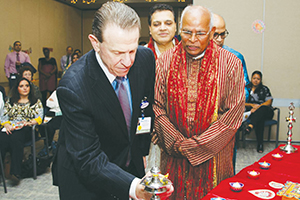
Les Hirsch, foreground, president and chief executive of Saint Peter's Healthcare System, joins Pandit Ramdular Singh, right, in a 2019 Diwali (festival of lights) ceremony. The event was intended to increase understanding among people of different backgrounds.
Among their areas of focus are investing in marginalized communities, increasing the pipeline of people of color seeking jobs in health care and identifying racial disparities in health outcomes to improve care delivery and access.
Local investment
Dr. Sam Ross, chief community health officer for Bon Secours Mercy Health, says that system is looking closely at its supply chain and trying to identify minority vendors in the communities it serves with whom it can contract. The goal, he says, is "creating better and deeper relationships with them so that they can grow their businesses and they can hire others and improve economic conditions in our communities."
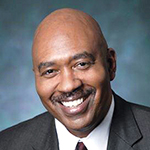
Ross
Ross says Bon Secours Mercy Health is also evaluating how it can make "place-based investments" in communities to address social needs such as affordable housing and food security. To make the impact of those investments as broad as possible, the system is partnering with other like-minded community groups.
"The fact is none of us alone have enough resources to address the deeper root causes of structural racism and things that are impacting communities today," he says. "But we are moving forward so as long as we make the commitment to that journey, knowing that there are some quick wins, so to speak, around social needs, but there are longer-term commitments that have to be made and long-term investments that have to be made to truly address the structural issues and the root causes."
Odesa Stapleton is chief diversity and inclusion officer for Bon Secours Mercy Health. She says another way that system is engaging with its local communities to promote positive change is through "community conveners." Bon Secours Mercy Health facilities invite community members, politicians and other stakeholders in marginalized communities to gather for conversation about working together to address area needs.
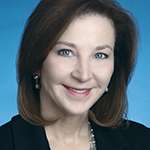
Jumonville
Lydia Jumonville, president and chief executive of SCL Health, stepped up this summer as one of 30 chief executives in Colorado to form the Colorado Inclusive Economy. The organization is "dedicated to envisioning and operationalizing a Colorado that is more equitable and inclusive." The group will provide a forum for open dialogue so the executives can share best practices for improving equity and inclusivity among all the enterprises.
Filling the pipelineDamond Boatwright, SSM Health's regional president of operations in Wisconsin, created and is leading SSM Health in Wisconsin's Inclusion, Equity and Diversity Advisory Council. Among its tasks is recruiting a workforce that "represents and is reflective of the communities that we serve" and doing community engagement work to improve the quality of life and health outcomes of people of color.
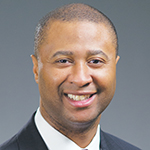
Boatwright
"I wanted this to be more than just words," Boatwright says of the council. He intends it to be "a challenge to our organization that we can and should do better. We are looking at very tangible metrics associated with our recruitment based on demographics and other statistics" to measure progress.
Angela M. MacDonald, system director of mission integration for CHRISTUS Health, says that system is aiming to encourage more people of color to consider professions in Catholic health care as a promising career path. She says a way to do this is to be more intentional about working with universities to groom upcoming talent for leadership careers in mission, ethics and administration. This includes work with Xavier University in New Orleans, the nation's only historically black college that is Roman Catholic.
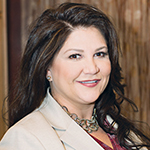
Treanor
PeaceHealth has similar efforts underway, including minority recruitment programming that already is resulting in the increased hiring of people of color, says Joline Treanor, PeaceHealth executive vice president of people and culture. In development are administrative fellowships and summer enrichment programs for first year graduate students to encourage minorities in career tracks that can lead to executive roles.
PeaceHealth also is partnering with the University of Oregon's Phil and Penny Knight Campus on a program called "Accelerating Scientific Impact." The initiative aims in part to provide a path to careers in science and medicine for populations underrepresented in those fields.
Care equity
Providence St. Joseph Health in September committed to a five-year, $50 million investment to address racial disparities and achieve equity in health care. The investment is starting by responding to the disproportionate impact of COVID-19 on communities of color, "by expanding outreach and education, increasing the COVID testing supply to marginalized populations, expanding access to care, and ensuring equitable distribution of treatment as well as a safe and effective COVID vaccine, when it becomes available," says Dr. Rhonda Medows, president of population health management for Providence St. Joseph Health.
At CHRISTUS Health, an initiative called Equity of Care that started in 2018 as a pilot in one region has been expanded systemwide. Linda Townsend, the system's vice president for advocacy and public policy, says the initiative pairs a group of patients who have hypertension with a patient navigator who does a social assessment and then tries to help them past social and economic barriers to managing their condition, such as poor access to nutritious foods or the high cost of medications. Many of those in the cohort groups are minorities, Townsend notes.
"This initiative is getting at the way that some of these inequities have played out because obviously they're impacting people's health," she says.
Saint Peter's Healthcare System long has aimed to identify and address care disparities, including by dispatching mobile health units to marginalized communities to improve their care access. This summer, when the system saw that COVID was having a significantly worse impact on minority communities, it provided care kits in those areas that contained personal protective gear and informational handouts, says Tabiri Chukunta, executive director of community outreach and diversity and inclusion for Saint Peter's.
PeaceHealth's Treanor says that system uses a targeted approach to combat race-based care disparities amid the pandemic. It organized drive-thru testing events for Latino, Black and Chuukese communities in Vancouver, Washington, this summer. The system gave away cloth masks, sanitizer and COVID informational materials at the events.
In partnership with community organizations, PeaceHealth is developing a comprehensive strategy for equitable distribution of COVID vaccine, when it becomes available. A dual goal is to ensure marginalized communities have access to a vaccine and that they have the trust in the health care system to take advantage of that access.